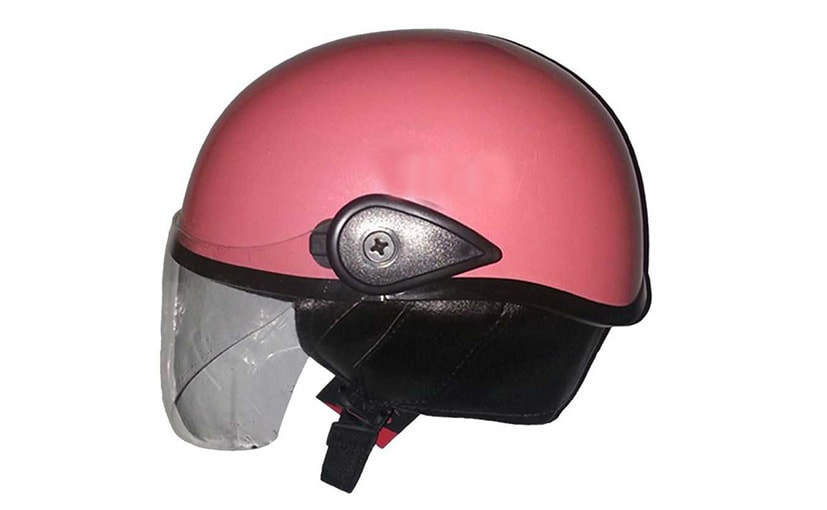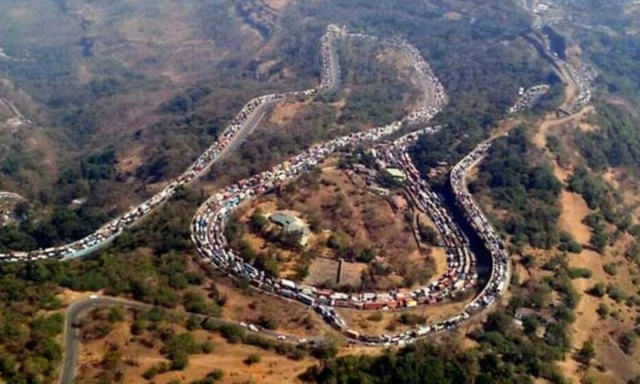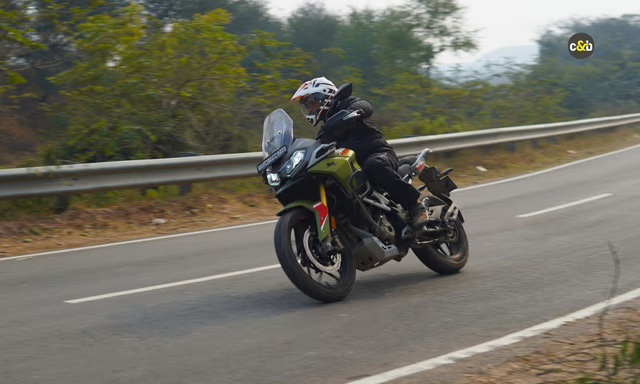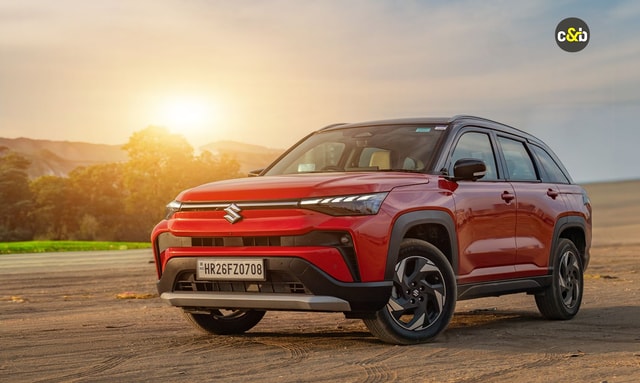Government Considers Ban On Non-ISI Helmets

In a move which is seen as an important step for the safety of two-wheeler riders in India, the government is planning to ban the sale of helmets which do not have ISI certification. A senior transport ministry official had recently stated that the Bureau of Indian Standards (BIS) has informed the Supreme Court panel on road safety that the process to ban sale of non-ISI certified helmets can be completed in six months. The official was speaking on March 7 at an event organised by the road transport ministry, and attended by Union Ministers Nitin Gadkari and Dharmendra Pradhan.
Also Read: Ban On Non-ISI Marked Helmets Called Off In Bengaluru
The government has to notify that all two-wheeler helmets must have certification by the BIS. Once this norm comes into place, helmets which do not have BIS certification cannot be sold any more, and sale of helmets with fake ISI mark will attract heavy penalties for the violators. The ISI Helmet Manufacturers' Association has welcomed the move, saying that majority of the helmets sold in India do not meet these standards and are a safety hazard for two-wheeler riders.
"We are proud of our policy makers as this was much needed. Looking at the current statics over 75 per cent to 80 per cent of helmets used by two-wheeler riders across India do not meet ISI standards, the market is flooded with sub-standard products that compromise on safety despite a fourth of all road deaths involve two-wheeler occupants," said Rajeev Kapur, President, ISI Helmet Manufacturers' Association.
Also Read: Bengaluru Enforces Ban On Non ISI Certified Helmets
According to a survey conducted by the World Health Organisation (WHO), two-wheeler riders who do not wear a helmet are 40 per cent more likely to die from a head injury. More than 10,000 two-wheeler riders lost their lives in 2016, owing to head injuries and not wearing helmets. But the issue is also of not wearing helmets and wearing helmets of sub-standard quality which are inexpensive, but also do not meet the required safety norms, and in this case, ISI certification from the BIS.
"We are now glad that government has made it mandatory for all helmet manufacturers to obtain Indian standards certification from Bureau of Indian Standardsundefined undefined(BIS) for the headgears in order to reduce road fatalities," added Kapur.
India is the largest two-wheeler market in the world and the estimated demand for helmets is around 9 crore every year, and with the government decision to ban the sale of non-ISI branded helmets, this gap will be filled by players who receive ISI certification. But as the market opens up to premium motorcycle brands as well as more awareness among riders about riding safely and wearing the right safety gear, the focus will also be on imported helmets which are internationally recognised to be safe and have DOT, ECE and Snell certification. These helmets are not only more expensive, but are of far superior quality than many ISI-certified brands which are sold in India.
A ban on non-ISI helmets is welcome, but there still remains a question mark on what the government's guidelines on banning non-ISI helmets will have on these imported helmets, some of which conform to very high safety standards. At the same time, the focus will also need to be on educating the masses on wearing a properly strapped helmet, ISI or not, which can mean the difference between life and death.
Latest News
 car&bike Team | Feb 25, 2026Over 1 Lakh Motorists to Get Toll Refund After Major Mumbai-Pune Expressway DisruptionMSRDC will refund Rs 5.16 crore in tolls to motorists affected by the Expressway Tanker Incident, which occurred earlier this month.1 min read
car&bike Team | Feb 25, 2026Over 1 Lakh Motorists to Get Toll Refund After Major Mumbai-Pune Expressway DisruptionMSRDC will refund Rs 5.16 crore in tolls to motorists affected by the Expressway Tanker Incident, which occurred earlier this month.1 min read car&bike Team | Feb 24, 20262026 KTM 250 Duke, 200 Duke Updated With New Colour OptionsThe 250 Duke gets two new colour options while the 200 Duke gets one.2 mins read
car&bike Team | Feb 24, 20262026 KTM 250 Duke, 200 Duke Updated With New Colour OptionsThe 250 Duke gets two new colour options while the 200 Duke gets one.2 mins read car&bike Team | Feb 24, 2026Mercedes-Benz CLA Electric Debuts In India: Bookings Open March 10This is the first time the CLA nameplate will be offered in an electric derivative with the EV claimed to offer 792km WLTP range.3 mins read
car&bike Team | Feb 24, 2026Mercedes-Benz CLA Electric Debuts In India: Bookings Open March 10This is the first time the CLA nameplate will be offered in an electric derivative with the EV claimed to offer 792km WLTP range.3 mins read car&bike Team | Feb 24, 2026Jeep Wrangler Willys 41 Special Edition Reintroduced: Priced At Rs 70.31 LakhThe Wrangler in this edition wears a military green paint scheme and is limited to just 41 units across India.1 min read
car&bike Team | Feb 24, 2026Jeep Wrangler Willys 41 Special Edition Reintroduced: Priced At Rs 70.31 LakhThe Wrangler in this edition wears a military green paint scheme and is limited to just 41 units across India.1 min read Jafar Rizvi | Feb 24, 2026New-Gen Toyota Fortuner Spied For The First TimeThe existing Toyota Fortuner has completed nearly a decade in India, and we could expect the new-gen SUV to make its India debut in 2027.3 mins read
Jafar Rizvi | Feb 24, 2026New-Gen Toyota Fortuner Spied For The First TimeThe existing Toyota Fortuner has completed nearly a decade in India, and we could expect the new-gen SUV to make its India debut in 2027.3 mins read Jaiveer Mehra | Feb 23, 2026Skoda Kushaq Facelift Production Commences Ahead Of LaunchThe facelifted Kushaq made its global debut last month with deliveries set to commence from March 2026.1 min read
Jaiveer Mehra | Feb 23, 2026Skoda Kushaq Facelift Production Commences Ahead Of LaunchThe facelifted Kushaq made its global debut last month with deliveries set to commence from March 2026.1 min read
 Preetam Bora | Feb 24, 2026Hero Destini 110 Review: Simplicity, RefinedThe Hero Destini 110 is a no-nonsense commuter that is simple, comfortable and above all, fuel efficient. In 2026, when buyers are spoilt for choice, is it good enough to consider?1 min read
Preetam Bora | Feb 24, 2026Hero Destini 110 Review: Simplicity, RefinedThe Hero Destini 110 is a no-nonsense commuter that is simple, comfortable and above all, fuel efficient. In 2026, when buyers are spoilt for choice, is it good enough to consider?1 min read Preetam Bora | Feb 23, 2026TVS Apache RTX Road Test Review: Redefining the Entry-Level ADVAfter spending some time with the TVS Apache RTX in traffic, the daily commute, as well as on open highways, one thing becomes clear: the RTX is trying to redefine the entry-level ADV segment. But is it without fault?1 min read
Preetam Bora | Feb 23, 2026TVS Apache RTX Road Test Review: Redefining the Entry-Level ADVAfter spending some time with the TVS Apache RTX in traffic, the daily commute, as well as on open highways, one thing becomes clear: the RTX is trying to redefine the entry-level ADV segment. But is it without fault?1 min read Girish Karkera | Feb 20, 2026Road Test: 2025 VinFast VF7 AWD Sky InfinityFlagship all-electric SUV from the Vietnamese car maker gets most of the basics right.1 min read
Girish Karkera | Feb 20, 2026Road Test: 2025 VinFast VF7 AWD Sky InfinityFlagship all-electric SUV from the Vietnamese car maker gets most of the basics right.1 min read Jaiveer Mehra | Feb 18, 2026New BMW X3 30 Vs Mercedes-Benz GLC 300: Midsize Luxury SUV FaceoffWith the new X3 30, BMW has a direct competitor to the petrol GLC 300, but which is the luxury SUV for you?1 min read
Jaiveer Mehra | Feb 18, 2026New BMW X3 30 Vs Mercedes-Benz GLC 300: Midsize Luxury SUV FaceoffWith the new X3 30, BMW has a direct competitor to the petrol GLC 300, but which is the luxury SUV for you?1 min read Jafar Rizvi | Feb 15, 2026Maruti Suzuki Victoris: Long-Term Review - Report 1The Victoris is Maruti’s latest offering for the Indian market, and after spending some time with it, here are a few early impressions.1 min read
Jafar Rizvi | Feb 15, 2026Maruti Suzuki Victoris: Long-Term Review - Report 1The Victoris is Maruti’s latest offering for the Indian market, and after spending some time with it, here are a few early impressions.1 min read




















































































































